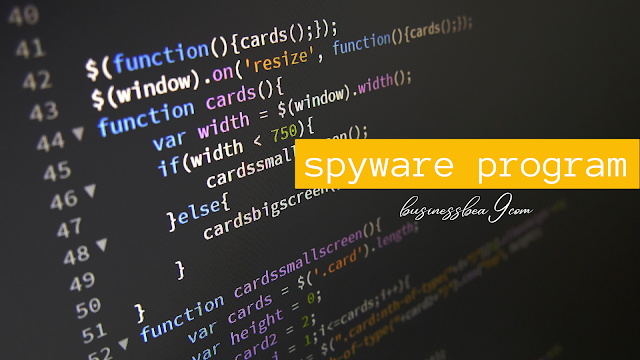What is the definition of simple spyware?
Spyware may be a type of malware - or malicious software - that is installed on a computer without the end user's knowledge. It invades the device and steals sensitive information and internet usage data and passes it on to advertisers, data companies or external users.
10 inquiries to Ask Yourself and Determine If You're an Expert in Spyware
Most people who use computers are afraid of spyware and the problems it causes. So, you learn all about spyware and thus ways to guard yourself from it. How will you recognize if you have complete knowledge? Well, what you'll do is browse the World Wide Web for the latest information about spyware and computer security.
You can test your knowledge by taking self-tests and quizzes. Companies like Microsoft are consumer friendly and check out to load a lot of information onto computers and software for users looking for knowledge.
According to Microsoft, you'll test your knowledge by answering the following questions:
1. How will you prevent children from accidentally downloading spyware?
The answer should be: You can prevent children from downloading spyware by giving them a limited user account.
2. What are browser cookies?
Answer: Created by unethical people to trace your browsing preferences for their own use, to send spam emails to your computer with advertisements and marketing ploys, to steal personal information like bank account details, Mastercard numbers, etc., and harm your computer and work By stealing data/files.
3. How are you able to use technology to protect your computer?
Answer: Many tech giants offer software and hardware to stop spyware attacks. for instance , Windows Defender Beta 2 is one option.
4. what's Windows Defender?
Answer: it's an anti-spyware software that can detect spyware and warn you instantly, inform you of potential dangers and new spyware, and take away spyware. It protects your PC from pop-ups, slow performance, security threats, and infections.
5. What are the common signs that your computer is infected?
Answer: The flags are unexplained pop-ups, strange computer behavior, change in home page settings, appearance of the newest toolbars that you did not install, computer slowing down, file loss, computer crash, etc.
6. What are the precautions to be taken?
Answer: Precautions are: install a hearth wall, update all software, specialise in security settings, use anti-spyware software, and use the online safely.
7. Might a firewall be useful?
Answer: Yes, it checks all information and acts as a filter which will not allow anything even weakly suspicious, it'll create a protective cloak and prevent unwanted sources from discovering your computer on the network.
8. How does spyware work and what protects your computer?
Answer: Spyware could be a thief who can use information about you, steal files, and put unwanted material on your computer. the pc should be protected with a firewall, anti-spyware hardware also as software, and micro-browsing also as downloads.
9. Where are you able to get protection against spyware?
Answer: There are many options a number of them are: Platinum Internet Security 2005, Microsoft Beta 2, Webroot Spy Sweeper, Sunbelt Counter Spy and Spybot.
10. Name three security measures?
Answer: One shouldn't open emails containing attachments from unknown sources; Use spam guard for all email accounts, and avoid using messengers.
Knowledge is out there these days at the click of a mouse, so update your knowledge domain and keep up with new developments.


Comments